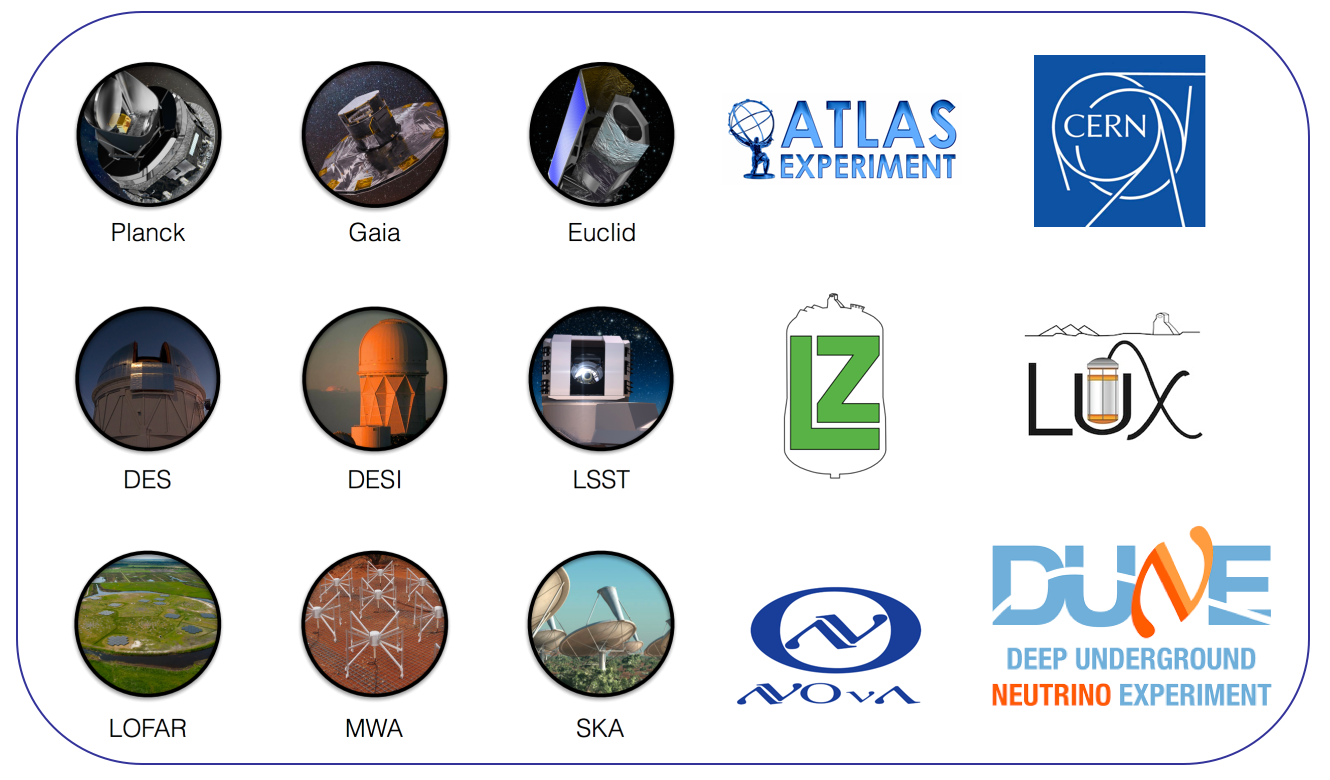PhD Studentships in the DIS CDT
This page is now obsolete, please see our new webpage here, which contains details of applications for next year and the projects that will be available.
Overview
Applications for the September 2023 CDT intake are now open, with over 10 fully funded studentships available. The deadline for applications is 10am 23rd January 2023, with interviews taking place around mid-February 2023. Applications are accepted after the deadline, but we can not guarantee you will get an interview if your application is late. We will have full studentship opportunities (tuition fees and a maintenance stipend, i.e. subsistence allowance) available for home, EU and international students, so we encourage all interested students to apply regardless of your residency status. International or EU students need to have their applications submitted by 13th January if they want to be considered for all studentship possibilities though, please get in touch with us for further details at [email protected].
A provisional list of studentship projects for the September 2023 intake will be released at the end of November. To get a rough idea of the sort of projects that will be available, you can review the projects offered last year here.
The online application form can be found here (once you have selected 'Accept and apply', fill in the drop-down lists with, 'Department: Physics and Astronomy', 'Programme Type: Postgraduate Research' and 'Full time, part time, etc: Full-time', then click the Search button, you should then select the course with code RRDPHYSDIS01. Please carefully follow the instructions below when applying for the DIS CDT:
- There is no need to write a research project, despite what the generic UCL application form states. So please do not attach one.
- You should include a short CV (strict 2 page limit), which highlights key points about your University education, MSci project (or similar), career/placements, your computing experience and any other details on your technical/experimental experience which is relevant.
- You should also include a short personal statement (strict 300 word limit) describing your reasons for applying for the DIS CDT, your overall research interests, in addition to highlighting any experience, achievements, awards or publications you think are very relevant to your application. You should also provide a ranked list of your three favourite research projects at the bottom of your statement. The personal statement should be added as an additional page to your CV. Please do not enter it in the 'Personal Statement' box of the online application.
- When uploading your combined CV and personal statement, please use a filename such as "CV_SURNAME_FIRSTNAME.pdf".
Scholarships
In additional to the fully funded studentships, we also strongly encourage applicants to consider applying for appropriate PhD scholarships. A selected list of suitable scholarships is provided below, along with a link to UCL's Scholarship Finder Tool (which can be used to search based upon research area and current country of residence). Please get in touch with us if you would like to apply for one of these scholarships or if you have identified a specific scholarship opportunity you would like to apply for via the DIS CDT.
- UCL's Research Excellence Scholarship
- UCL's Research Opportunity Scholarship
- IOP's Bell Burnell Scholarships
- UCL's Scholarship Finder Tool
Eligibility
We will automatically consider all candidates for appropriate studentships when they apply to us. These pay for tuition fees and a maintenance (i.e. subsistence) allowance. More details on the studentships, including their value, can be found here. Applicants meeting the relevant criteria are automatically considered for a studentship and do not need to apply for a studentship separately.
Applicants whose first language is not English should note the additional requirements in respect of this (given the continued Covid-19 situation there is also now the option to take the language test online). Please note that unless you satisfy the requirements mentioned above the department cannot offer you a PhD position (i.e. we are not allowed to make exceptions). We strongly advise that you check whether you meet the requirements, and take any necessary tests such as the IELTS, before making an application (; or, if this is not possible, no later than the date of interviews.
Projects
To get a flavour of the type of projects on offer in the other areas, you can have a look at the list of projects assigned to the current cohort of DIS students here. You can also see the profiles of the currents students enrolled in the Centre here.
In the application you should ensure you apply for the CDT DIS stream, but clearly state in your research statement whether you are interested in a DIS project in Astrophysics and/or High Energy Physics. You will be able to express an interest in a particular area.
Applicants interested in a wider range of
non-CDT based research projects in the both the
High Energy Physics and Astrophysics groups,
need to also apply directly to the respective
groups for consideration. Further details on
dedicated studentships can be found
here
for the High Energy Physics group.
Details about undertaking PhDs in the Astrophysics area can be found
here,
with the Astrophysics group page
here
and PhD opportunities for the MSSL group are
here.

